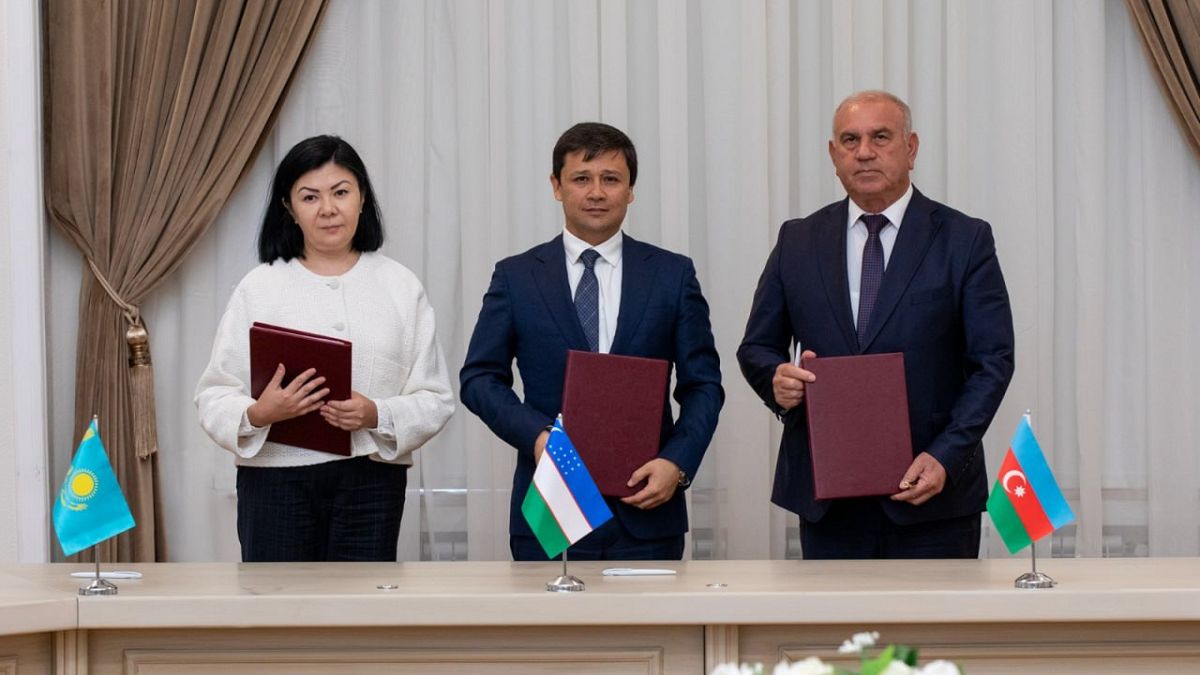

In a week marked by meaningful advancements in various sectors, countries from Central Asia to Europe and beyond have focused on initiatives that promise significant impacts on energy, technology, and social inclusion. These efforts, driven by innovation and international cooperation, pave the way for a more interconnected and resilient global landscape.
A significant stride toward sustainable energy transportation emerged with the collaboration of Azerbaijan, Uzbekistan, and Kazakhstan. These countries have embarked on an ambitious project to establish a green energy corridor. This transcontinental venture aims to bridge Central Asia and Europe, making it a pivotal step in reshaping the regional energy dynamics. The initiative focuses on harnessing renewable energy sources, thereby contributing positively to climate goals and enhancing the energy security for the involved countries and their European partners. This project exemplifies a forward-thinking approach to energy distribution and highlights the importance of collaborative efforts in addressing global environmental challenges.
In a different realm of progress, the field of space exploration witnessed a milestone as astronauts from Poland and Hungary concluded a successful private spaceflight with a splashdown in the Pacific Ocean. This event marks a resurgence in space activities for these nations, last notably active during the Soviet era, and underscores the growing role of private companies in enabling access to space. The revival of space programs in these countries reflects a renewed interest and investment in space exploration, which could inspire future enthusiasts and experts in aerospace technologies. As private space travel becomes more accessible, the potential for collaborative international missions may open new frontiers for global space exploration endeavors.
Meanwhile, infrastructure safety received a significant boost in Italy, where an innovative Earthquake Early Warning System was introduced on the Rome-Naples railway line. This pioneering system utilizes advanced sensors to preemptively detect seismic activity and automatically halt trains, thereby ensuring passenger safety before an earthquake’s full effects are felt. Such advancements in transportation safety systems underscore the importance of integrating cutting-edge technology to protect human lives. The proactive deployment of this system serves as a reassuring enhancement to Italy’s railway infrastructure, setting a benchmark for others to follow in earthquake-prone regions.
In the sphere of sports and inclusion, Kazakhstan hosted the Virtus World Basketball Championships, marking the first time this prestigious event for athletes with intellectual disabilities took place in Asia. Athletes from 11 countries gathered in Astana to compete, with many advocating for greater inclusion in the Paralympic Games. The event not only highlighted the remarkable skills and sportsmanship of the athletes but also emphasized the ongoing movement toward greater representation and inclusion in supporting platforms. By hosting such an event, Kazakhstan contributes to elevating the profile of athletes with intellectual disabilities and supports their calls for broader recognition on the international stage.
Finally, in the realm of security and technology, a warning emerged from the United Kingdom concerning the potential use of artificial intelligence by terrorists. Jonathan Hall, the UK’s advisor on terrorism legislation, emphasized the necessity for current laws to evolve in anticipation of AI’s misuse. The notion of AI-driven threats reflects broader concerns about the technology’s dual-use potential. The call for preparedness in the face of AI-related security threats serves as a reminder for stakeholders across sectors to engage in dialogues and develop frameworks that ensure technologies serve humanity positively rather than pose unintended risks.
This week of developments across diverse fields exemplifies the dynamic nature of global advancements. From harnessing renewable energy and reigniting space exploration to ensuring infrastructure safety, promoting social inclusion in sports, and preparing for future security challenges, the efforts by various countries and sectors demonstrate the proactive steps being taken toward a more connected, responsible, and resilient world. Each initiative, underscored by international partnerships and innovative solutions, carries the potential to inspire further progress and collaboration. As these stories unfold, they remind us of the potential for positive change when nations and individuals come together with common purpose and determination.
Source: {link}
